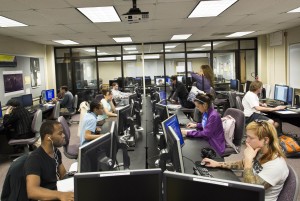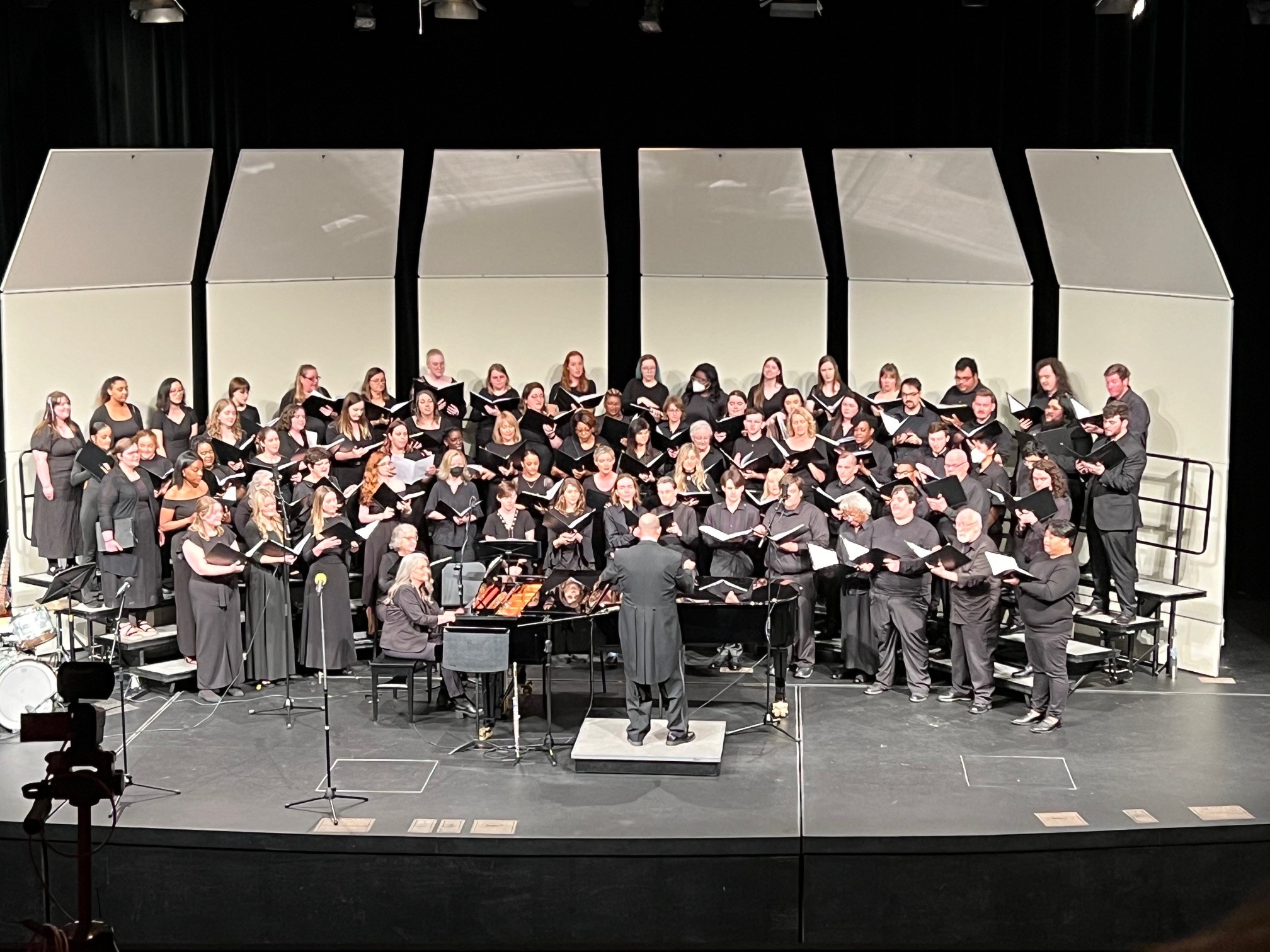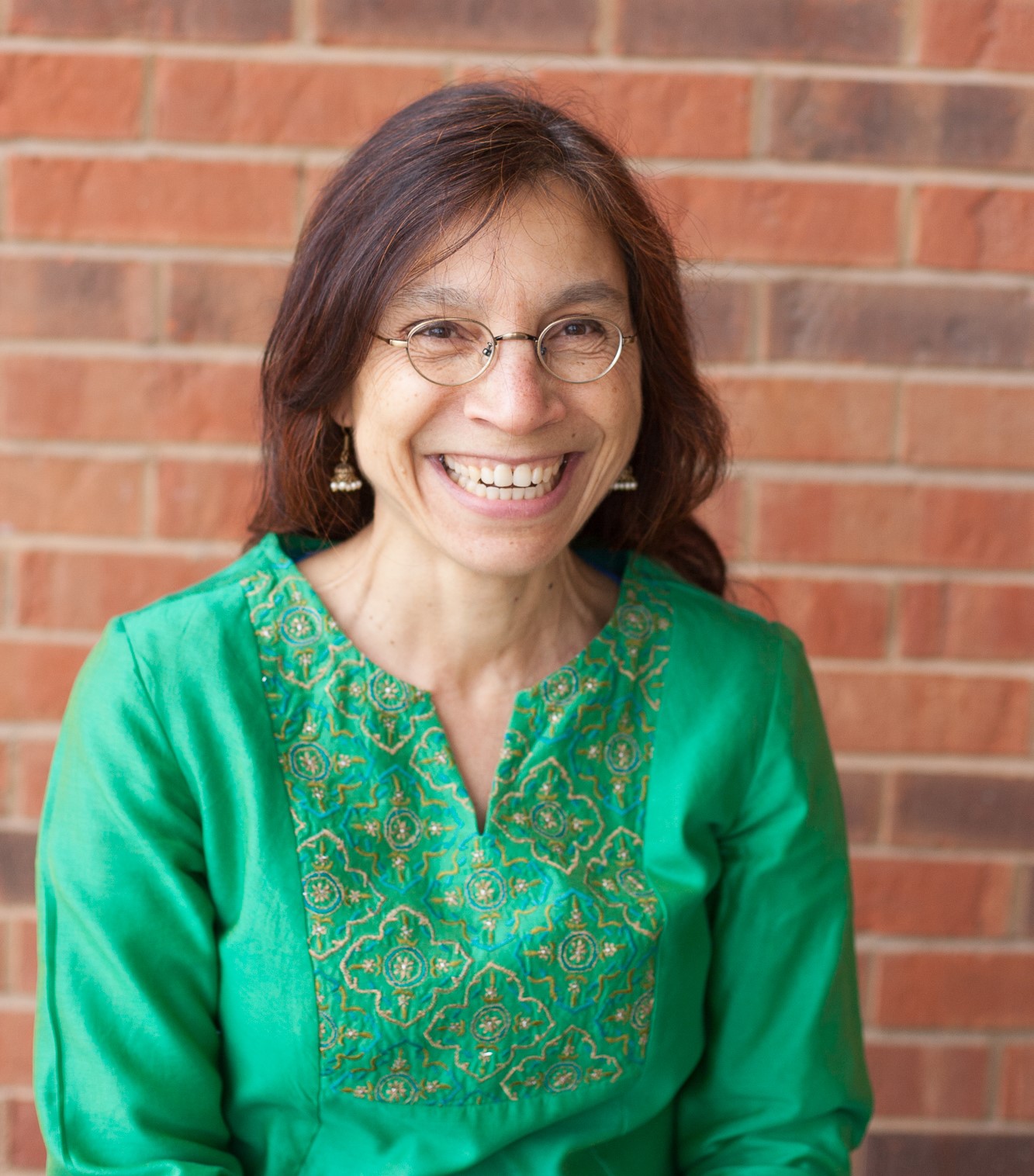Meramec students participate in the Soliya Connect program
By: Kavahn Mansouri
-Editor In Chief-

In room SW110 five computers are equipped with web cams and microphones. These are not just computers, they are tools of the Soliya Connect program at STLCC-Meramec; a program that connects students across the world through video chat rooms to partake in ‘constructive dialogue.”
Across the world campuses participate in Soliya Connect, ranging from colleges such as Yale University to the Hashemite University in Jordan. Meramec is the first and only community college to participate in the program, and is the only higher education institute in Missouri to be a part of the program.
Meramec non-traditional student Deborah Caby is one of the five students involved in the Soliya Connect program. She has interacted with students from Jordan, Tunisia, Egypt, Venice and several other countries. Caby said the program is a way for people across the world to ‘bridge the gap.’
“I think as we get to know each other as people we can then start a dialogue and build these bridges,” Caby said. “Then we’re not looking at each other through a big divide going ‘okay I’m against you you’re against me.’”
Soliya Connect is a virtual newsroom; students participate in constructive dialogue while facilitators keep the conversation rolling. Dialogue can range from post 9/11 foreign relations to the situation in Israel. Students are also required to complete a 90-second advertisement from film clips provided by Soliya and are provided with readings for the program.
Meramec Professor Angela Hamilton discovered the Soliya Connect program during her sabbatical. She said the program offers a way from her students reading Middle Eastern literature to understand the perspective of students from the area.
“It was through my sabbatical research that I found Soliya, they were linked to the United States Institute of Peace and that threw me in right away,” Hamilton said. “I was trying to find a way to fill that chasm between having my American students reading Middle Eastern literature but not having any contact with students who were living in the Middle East who might have a different perspective.”
Hamilton found funding for the Soliya Connect program through a grant awarded to Meramec from the Missouri Humanities Council; the funding allowed five students to participate in the program.
Hamilton said the program her experience with the program through training sessions inspired her to bring it home to Meramec.
“Last fall I did a training session for 10 weeks to become a co-facilitator for the Soliya Connect Program. This last spring I co-facilitated a group of students from the Middle East and the U.S. It was extremely rewarding and solidified my decision to pursue the Connect Program for this campus,” Hamilton said. “I have five students participating in an eight-week program, which started last week. I’d love to expand it but I’d need more support to do that.”
Caby said the program helps merge the differences between cultures across the globe.
“They give you a reading and some film clips and you talk about it; it’s about the culture, merging the differences between a Muslim culture, or Christian, or Jewish, or whatever,” Caby said. “Going across those different cultures and religions and getting to know each other as people.”
Caby added the program gives students a chance to understand each other’s differing situation and the things they have in common.
“We’re looking for commonalities in human nature and how we can bridge this cultural divide,” Caby said.
Meramec student Kaitlin Hayes said she felt honored to be able to participate in the program and represent the college.
“I was worried when I heard we were the first community college to do this, I thought there would be some prejudice but there wasn’t. It’s really exciting to be able to represent Meramec like this,” Hayes said. “I almost feel honored to represent Meramec.”
Caby said some of the conversations in her first connection “surprised” her.
“We were talking about unemployment and I asked the men, with the women getting so much freedom all the sudden? ‘How does that affect you? Are you resentful of that or not resentful for that and they were kind of defensive about that. ‘Why would you ask a question like that? Do you not want women to be free?’ It was surprising,” Caby said.
Hearing men defend women from an area where there is sexism is thought to be the norm was shocking, Caby said.
“I was surprised by it and one of the men said ‘you know my mother is a woman,’” Caby said.
Caby said she feels lucky to be part of the program and that, because of her age, she felt younger people would benefit more from the program.
“I’m not as technical savvy as a lot of people are,” Caby said. “I feel incredibly lucky. Then it was like ‘why would they pick me?’ At first I thought it would be good for only younger people to have this advantage, and then I realized I have a lot to offer too. Being older I have been through a lot I’ve understood a lot and I’ve told other people around school as an older person we’re handing younger people a world full of messes that we’ve managed to screw up royally.“
Hamilton said co-facilitating the program is rewarding in its own ways.
“Hearing from someone perhaps from Jordan and someone from Kentucky coming to this agreement about an issue like how to approach the subject of Israel is amazing,” Hamilton said. “Or even smaller than that; I had a student and a student from Lebanon whose grandmothers had things in common and they were talking about that.”
Hayes said the program is teaching her about different cultures globally and helping her understand different viewpoints from different cultures.
“I feel like I’m getting a lot out of it and I hope others are too,” Hayes said.
The experiences that Soliya Connect students share during sessions will affect the rest of their lives, Hamilton said.
“Getting into the group and talking on that level was incredible. But when I step back from co-facilitating and I see that these are students who are not going to forget these experiences, I know that what they do from here on out will somehow be shaped by the friendships they developed in the Connect Program,” Hamilton said. “It’s pretty amazing to me and I think it does influence how we treat others.”
Caby said its important for someone her age to be involved in Soliya Connect so younger students understand the “mess” they are inheriting.
“You need someone there with you going ‘okay we know we screwed up, let us help you.’ Instead of us just handing it off and expecting you to take care of it,” Caby said.











